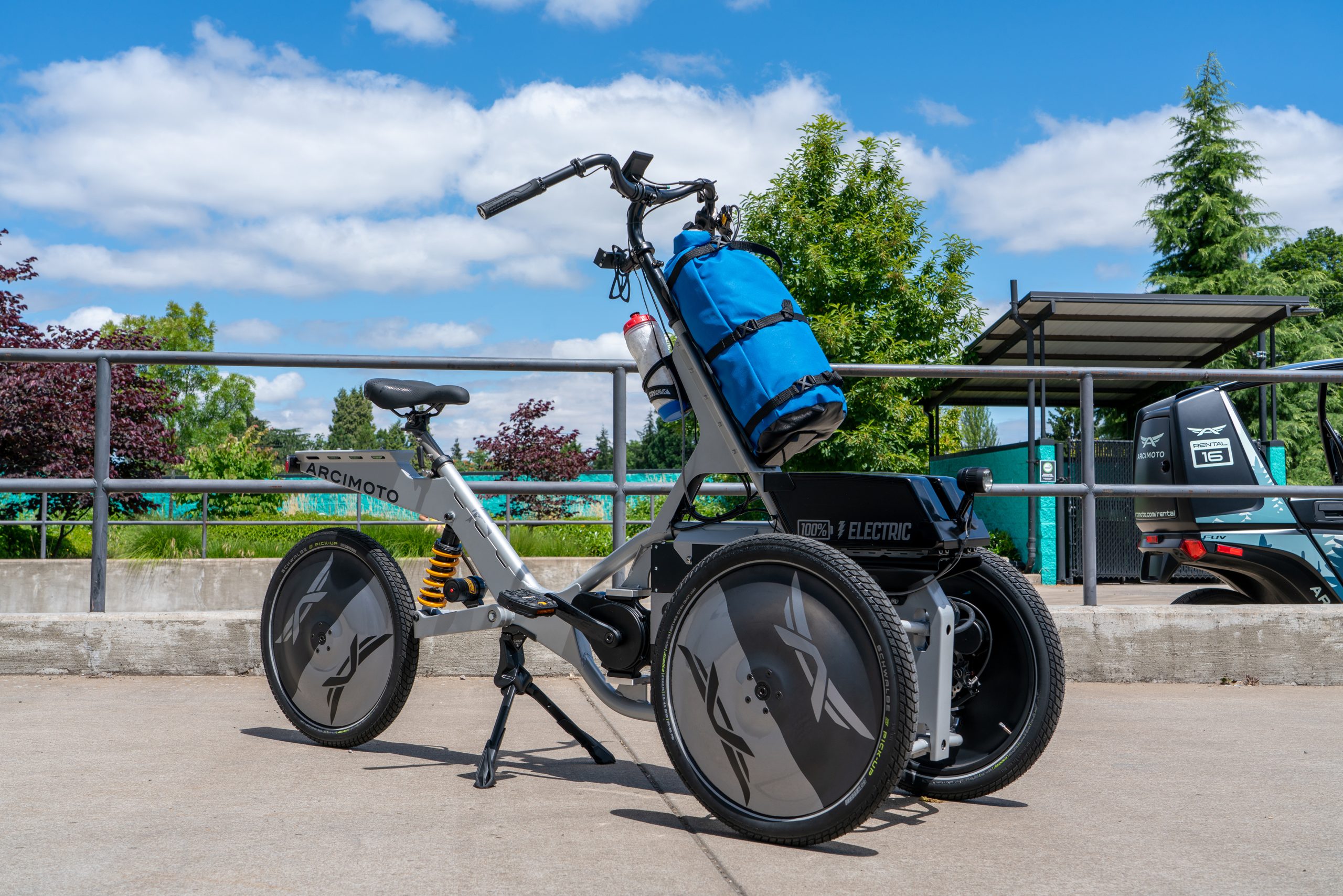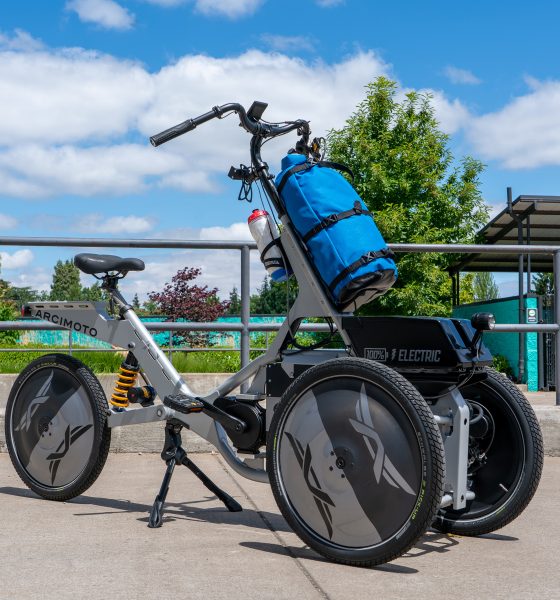Arcimoto CEO Mark Frohnmayer and I chatted about the new Mean Lean Machine Cybertrike. This is Part 2 and the final part of my interview with Mark. If you haven’t read Part 1, you can go back and read that here.
Starting from where we left off, Mark was speaking about Arcimoto’s acquisition of Tilting Motor Works and shared how the team incorporated the technology into the MLM Cybertrike.
The MLM acronym itself
Mark and I joked about the acronym which also stands for multi-level marketing.
“People are like, ‘did you know that Mean Lean Machine is MLM?’ And I’m like, ‘of course I know that,’ and they’re like ‘well don’t you know that MLMs are bad?’ and I’m like, ‘Not this one! It’s actually the ultimate multi-level marketing scheme. Every one of our customers will sell them.”
Here, Mark is referring to word-of-mouth marketing which is something that has served Tesla well. Owners will share their experiences with their friends who will be inspired to buy one.
Making Things That Sell Themselves
The topic of MLMs opened up another conversation about selling and Mark pointed out that the best thing to do is make things that sell themselves.
“For a long time, I actually loathed the selling process but the best thing to do is to make things that sell themselves.”
I agreed with Mark on this point. Make something that you love and people will see it and be inspired.
“Absolutely. And if all I do is just tell people honestly my experience with and how I feel about the Fun Utility Vehicle, the Roadster, and the Cybertrike, I kinda just can’t help myself.”
“I’m just like, ‘it’s so awesome! You must try it! And then you’ll probably want one.’”
The Arcimoto MLM vehicle Tiers
Mark said that there are three tiers or versions of the Mean Lean Machine.
“The Cybertrike is the only one that we have shown what the actual final product is going to look like. But we talked a little bit about the Sidewinder which is going to be the base model.”
“There’s an entry-level model and we’ve not announced pricing yet for any of these but will be coming soon. Then there’s the Cybertrike and then the true Mean Lean Machine that is going to be on the high end. Both of those other ones are in the works and we are very excited to show those when they’re ready.”
A point made at the Arcimoto Ramp It Up! Event
During the Ramp It Up! event that Arcimoto held in February, Mark made a very critical point about the weight of other EVs and the use of materials–especially since we are having supply chain constraints.
In the video, Mark shared an example. The General Motors electric Hummer weighs 9,036 pounds.
“This is a vehicle that when driven alone is more than 40 times the weight of its occupant. That is enough material to build two Model Ys. If we hit our targets, it’s enough material to build eight Fun Utility Vehicles.”
Mark further explained to me that the same material for that Hummer can produce approximately 100 Mean Lean Machines.
The real purpose of Arcimoto’s program.
Mark told me the real purpose of Arcimoto’s MLM program is to make an e-bike class vehicle that appeals to a much wider audience while using a fraction of the material cost of a full-sized car.
“When you think about the real purpose of this whole program, it’s to make an e-bike class vehicle that can appeal to a much wider audience. People who don’t want to fall off a bike, or don’t want to brake a chain, who want to carry a lot more stuff and want a more comfortable ride.
“But provide that at a tiny fraction of the material cost of a full-sized car. And if we follow the news on the limiting factors of electric vehicles, a bit limiting factor is the availability of raw materials to produce vehicles.
“Given that that is the case, we believe that it makes all the sense in the world to really rethink how big the vehicles are that we are using to get around. And that really is the purpose of the Mean Lean Machine.”
“It’s to provide something so awesome in the true micro-mobility e-bike class that it really starts to move the market in ways that it’s still not moving fast enough right now.”

Elon Musk
Tesla’s Elon Musk: 10 billion miles needed for safe Unsupervised FSD
As per the CEO, roughly 10 billion miles of training data are required due to reality’s “super long tail of complexity.”
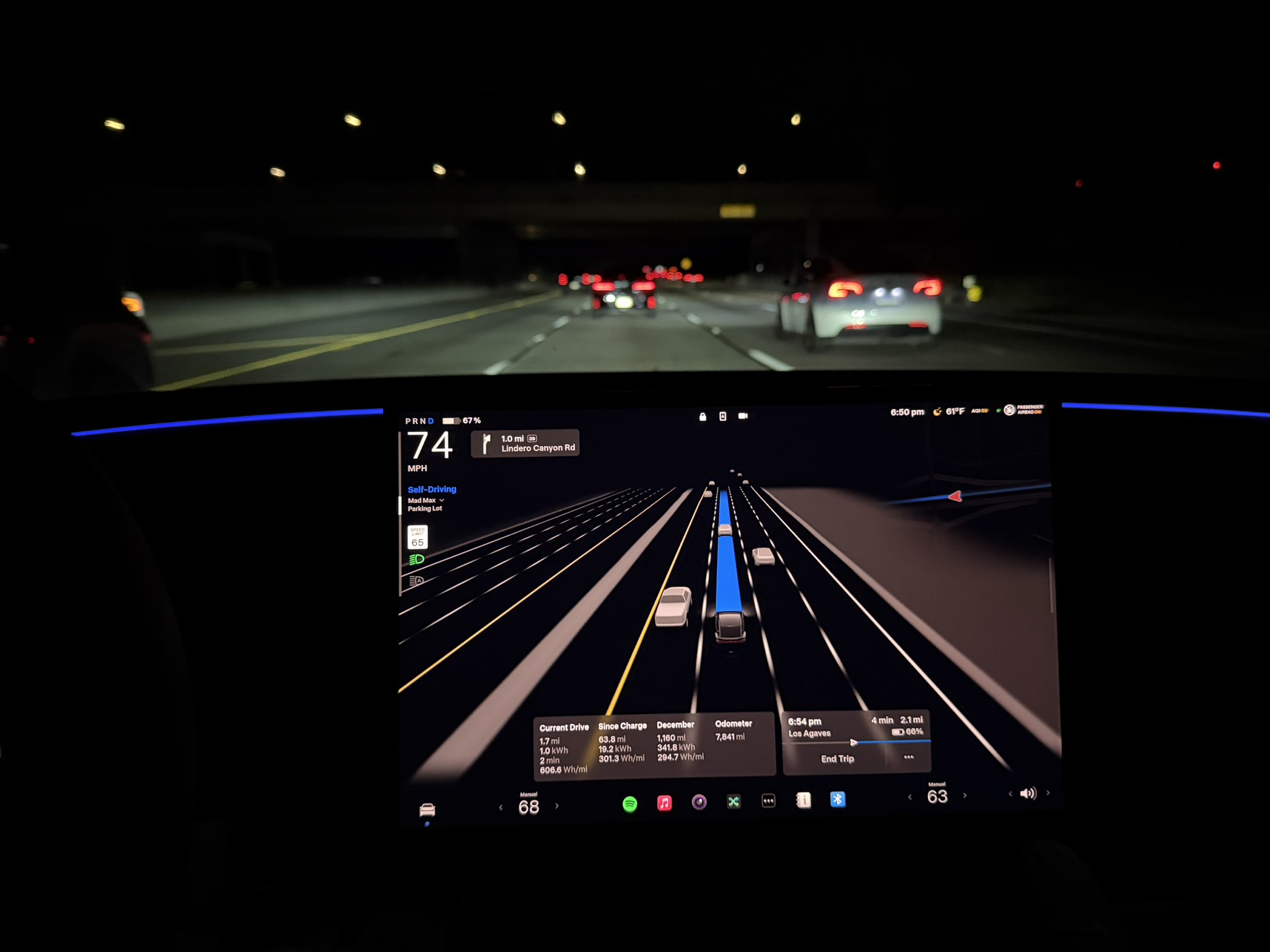
Tesla CEO Elon Musk has provided an updated estimate for the training data needed to achieve truly safe unsupervised Full Self-Driving (FSD).
As per the CEO, roughly 10 billion miles of training data are required due to reality’s “super long tail of complexity.”
10 billion miles of training data
Musk comment came as a reply to Apple and Rivian alum Paul Beisel, who posted an analysis on X about the gap between tech demonstrations and real-world products. In his post, Beisel highlighted Tesla’s data-driven lead in autonomy, and he also argued that it would not be easy for rivals to become a legitimate competitor to FSD quickly.
“The notion that someone can ‘catch up’ to this problem primarily through simulation and limited on-road exposure strikes me as deeply naive. This is not a demo problem. It is a scale, data, and iteration problem— and Tesla is already far, far down that road while others are just getting started,” Beisel wrote.
Musk responded to Beisel’s post, stating that “Roughly 10 billion miles of training data is needed to achieve safe unsupervised self-driving. Reality has a super long tail of complexity.” This is quite interesting considering that in his Master Plan Part Deux, Elon Musk estimated that worldwide regulatory approval for autonomous driving would require around 6 billion miles.
FSD’s total training miles
As 2025 came to a close, Tesla community members observed that FSD was already nearing 7 billion miles driven, with over 2.5 billion miles being from inner city roads. The 7-billion-mile mark was passed just a few days later. This suggests that Tesla is likely the company today with the most training data for its autonomous driving program.
The difficulties of achieving autonomy were referenced by Elon Musk recently, when he commented on Nvidia’s Alpamayo program. As per Musk, “they will find that it’s easy to get to 99% and then super hard to solve the long tail of the distribution.” These sentiments were echoed by Tesla VP for AI software Ashok Elluswamy, who also noted on X that “the long tail is sooo long, that most people can’t grasp it.”
News
Tesla earns top honors at MotorTrend’s SDV Innovator Awards
MotorTrend’s SDV Awards were presented during CES 2026 in Las Vegas.
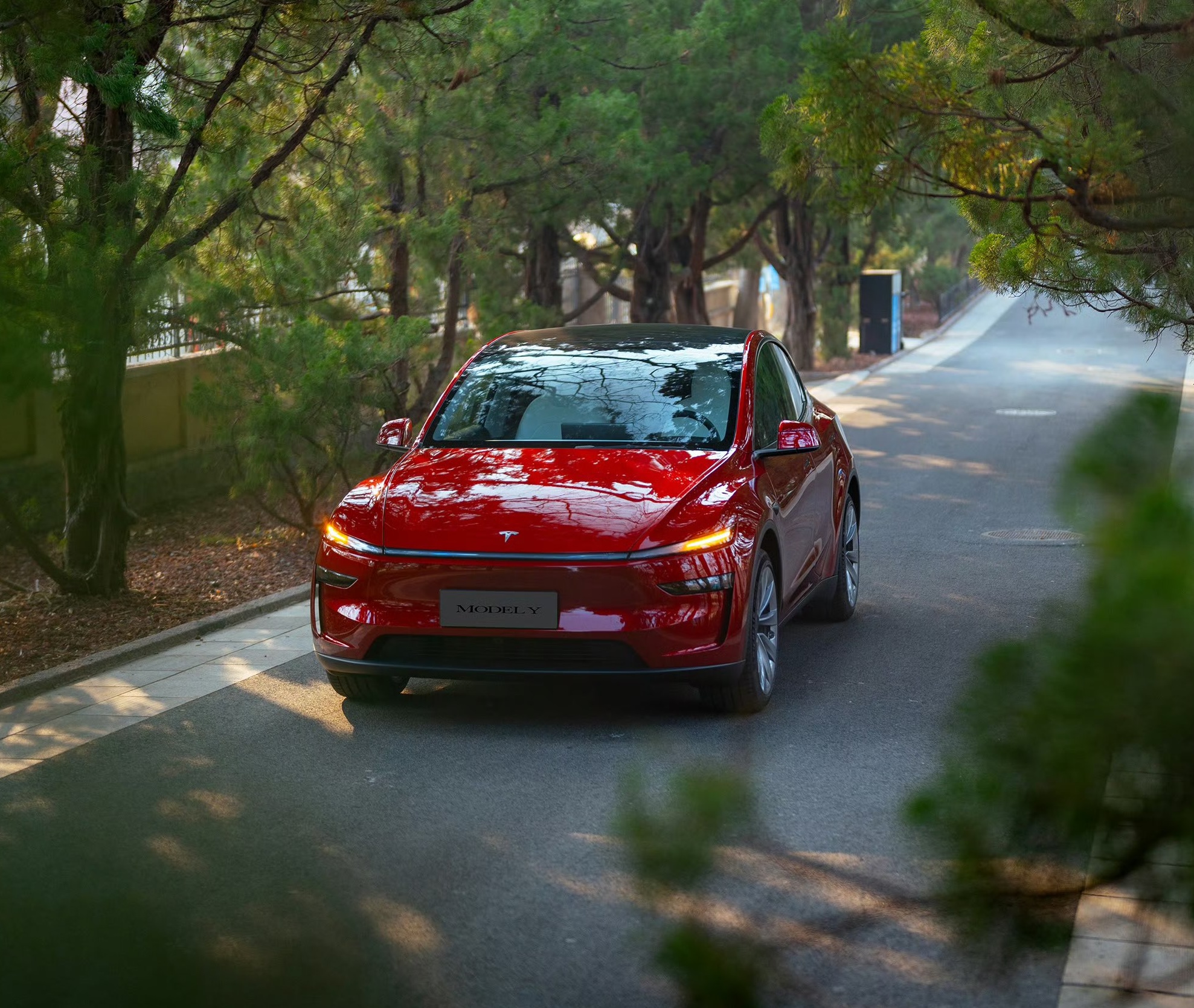
Tesla emerged as one of the most recognized automakers at MotorTrend’s 2026 Software-Defined Vehicle (SDV) Innovator Awards.
As could be seen in a press release from the publication, two key Tesla employees were honored for their work on AI, autonomy, and vehicle software. MotorTrend’s SDV Awards were presented during CES 2026 in Las Vegas.
Tesla leaders and engineers recognized
The fourth annual SDV Innovator Awards celebrate pioneers and experts who are pushing the automotive industry deeper into software-driven development. Among the most notable honorees for this year was Ashok Elluswamy, Tesla’s Vice President of AI Software, who received a Pioneer Award for his role in advancing artificial intelligence and autonomy across the company’s vehicle lineup.
Tesla also secured recognition in the Expert category, with Lawson Fulton, a staff Autopilot machine learning engineer, honored for his contributions to Tesla’s driver-assistance and autonomous systems.
Tesla’s software-first strategy
While automakers like General Motors, Ford, and Rivian also received recognition, Tesla’s multiple awards stood out given the company’s outsized role in popularizing software-defined vehicles over the past decade. From frequent OTA updates to its data-driven approach to autonomy, Tesla has consistently treated vehicles as evolving software platforms rather than static products.
This has made Tesla’s vehicles very unique in their respective sectors, as they are arguably the only cars that objectively get better over time. This is especially true for vehicles that are loaded with the company’s Full Self-Driving system, which are getting progressively more intelligent and autonomous over time. The majority of Tesla’s updates to its vehicles are free as well, which is very much appreciated by customers worldwide.
Elon Musk
Judge clears path for Elon Musk’s OpenAI lawsuit to go before a jury
The decision maintains Musk’s claims that OpenAI’s shift toward a for-profit structure violated early assurances made to him as a co-founder.
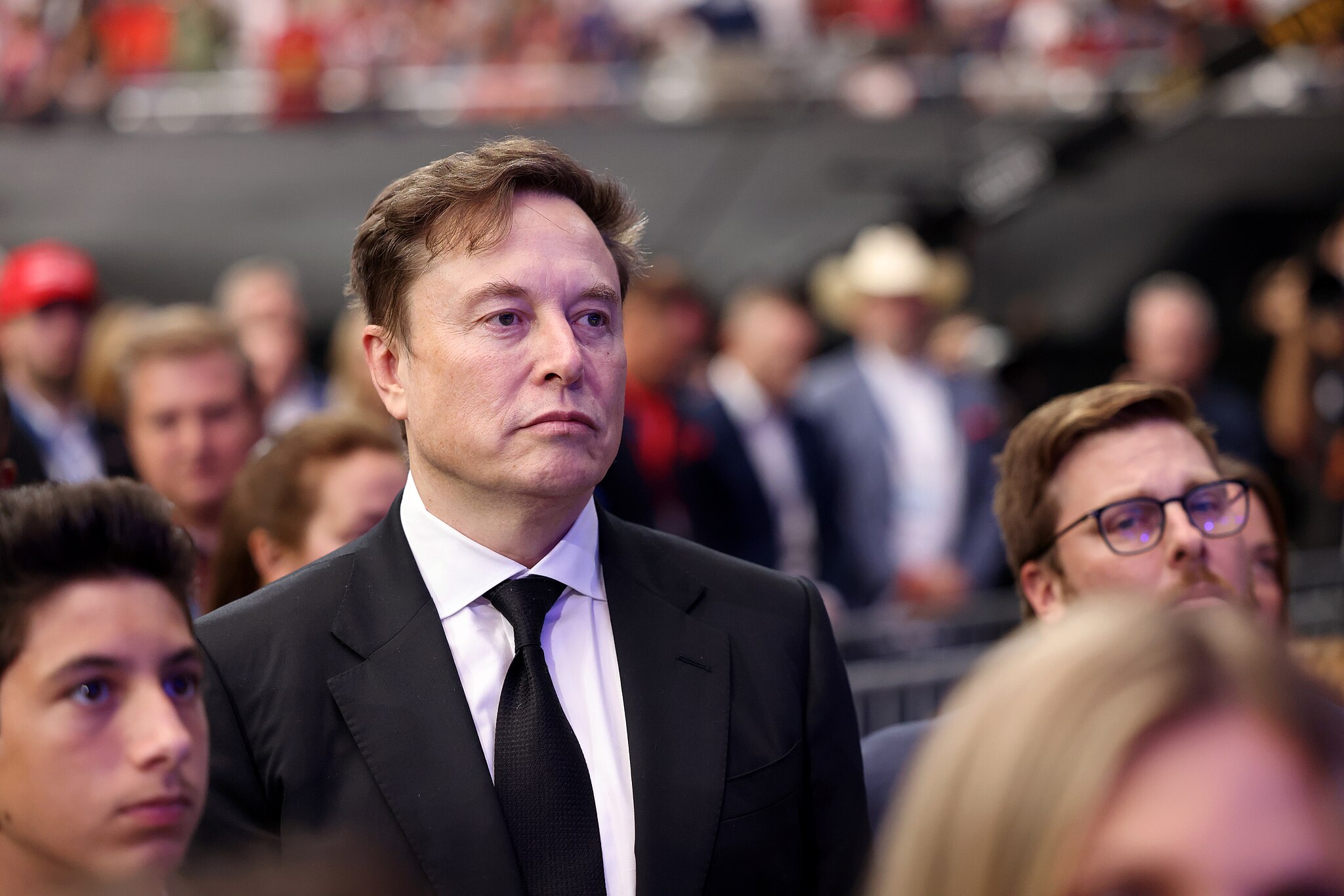
A U.S. judge has ruled that Elon Musk’s lawsuit accusing OpenAI of abandoning its founding nonprofit mission can proceed to a jury trial.
The decision maintains Musk’s claims that OpenAI’s shift toward a for-profit structure violated early assurances made to him as a co-founder. These claims are directly opposed by OpenAI.
Judge says disputed facts warrant a trial
At a hearing in Oakland, U.S. District Judge Yvonne Gonzalez Rogers stated that there was “plenty of evidence” suggesting that OpenAI leaders had promised that the organization’s original nonprofit structure would be maintained. She ruled that those disputed facts should be evaluated by a jury at a trial in March rather than decided by the court at this stage, as noted in a Reuters report.
Musk helped co-found OpenAI in 2015 but left the organization in 2018. In his lawsuit, he argued that he contributed roughly $38 million, or about 60% of OpenAI’s early funding, based on assurances that the company would remain a nonprofit dedicated to the public benefit. He is seeking unspecified monetary damages tied to what he describes as “ill-gotten gains.”
OpenAI, however, has repeatedly rejected Musk’s allegations. The company has stated that Musk’s claims were baseless and part of a pattern of harassment.
Rivalries and Microsoft ties
The case unfolds against the backdrop of intensifying competition in generative artificial intelligence. Musk now runs xAI, whose Grok chatbot competes directly with OpenAI’s flagship ChatGPT. OpenAI has argued that Musk is a frustrated commercial rival who is simply attempting to slow down a market leader.
The lawsuit also names Microsoft as a defendant, citing its multibillion-dollar partnerships with OpenAI. Microsoft has urged the court to dismiss the claims against it, arguing there is no evidence it aided or abetted any alleged misconduct. Lawyers for OpenAI have also pushed for the case to be thrown out, claiming that Musk failed to show sufficient factual basis for claims such as fraud and breach of contract.
Judge Gonzalez Rogers, however, declined to end the case at this stage, noting that a jury would also need to consider whether Musk filed the lawsuit within the applicable statute of limitations. Still, the dispute between Elon Musk and OpenAI is now headed for a high-profile jury trial in the coming months.
